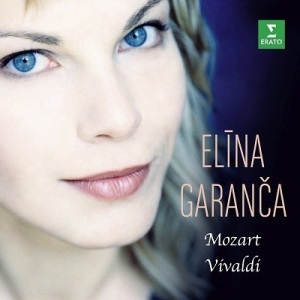Elina Garanca is great on stage; I have seen her live often, and watching her on DVDs (Carmen, Cenerentola) will allow readers who have never seen her in person to assess for themselves. I think they will agree. She also has a remarkable voice and technique. A few years ago, I wrote a review of her here (see reviews archive) that began: “The remarkably beautiful Latvian mezzo Elina Garanca possesses a voice of equal beauty: there’s not a note on this CD that lacks warmth, sheen, or fullness of tone. Over the range of about two octaves (from B to B to B) the sound is staggeringly even; her control over dynamics is stunning and her breath control is to be admired, while at the same time she never draws attention to it as a ‘stunt’.”
I could very well begin this review the same way, and I would continue the way I’ve done with other CDs of hers: she seems to have no audible temperament other than generic. She will correctly emphasize certain words–her “Com’e scoglio” on this current CD is effective not only for its wonderful singing, but for her attention to text. But only in seeing her on stage do I believe that she is involved.
This CD is a compilation from a Mozart CD she recorded in 2004. The excerpts from Bajazet are from a terrific, complete performance that was released on Virgin in 2005 under Fabio Biondi–she sings the trouser role of Andronicus. Her smoky voice is fine for this role, composed for a male alto, and “Quel ciglio vezzosetto” is noble, while “Spesso tra vaghe rose” is chock-full of trills, octave leaps, and sensitive phrasing. But the tragic “Non ho nel sen costanza” totally lacks color and, well, tragedy until the B section. Then drabness re-enters.
But once we get to Mozart it becomes clear that Garanca is better in Baroque–or at least she was in 2004 and 2005. Aside from the somewhat successful “Com’e scoglio” we get a great deal of sameness–Dorabella sounds just like Fiordiligi. “Ch’io mi scordi di te” is pretty and Ramiro’s arias from La finta giardiniera are nice to hear and are quickly forgotten. She also sings behind the beat occasionally. Louis Langrée and the Camerata Salzburg seem to be making sure that Garanca is more important than Mozart’s instruments. Skip this.
































